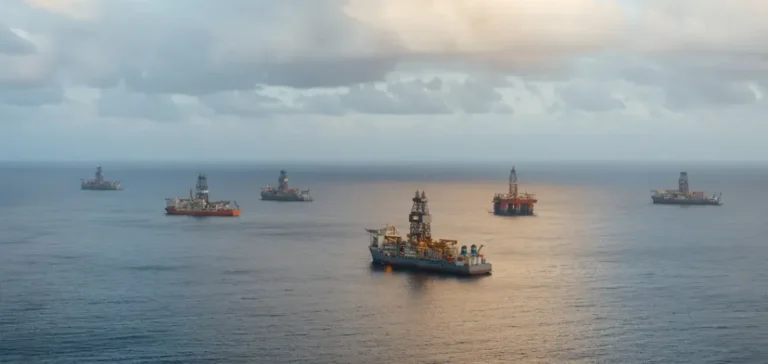Gabon has taken a new step in its strategy to revive oil production by signing two separate agreements with international groups BP and ExxonMobil. These partnerships aim to accelerate the exploration of blocks located in deep and ultra-deep waters, a priority area for the authorities due to the decline of mature oil fields.
Agreements without immediate legal commitments
The Ministry of Oil, Gas and Mines has formalised a memorandum of understanding with British group BP, focused on assessing the potential of deep offshore blocks. This protocol was announced on October 30 by the African Energy Chamber. It follows a similar non-binding agreement signed days earlier with ExxonMobil, centred on identifying new offshore prospects.
These agreements do not include immediate financial obligations but reflect renewed interest from these majors in the underexplored coastal basin of Gabon. The discussions follow a trend already underway with other operators active in the country, such as Perenco, Assala Energy, and VAALCO Energy.
Vast unexplored offshore potential
Authorities report that around 70% of Gabon’s offshore area remains unexplored. This assessment drives the government to seek technically capable partners with the resources and advanced technologies to access deep reserves.
Gabon’s oil production, estimated at 204,000 barrels per day in 2023, continues to decline, mainly due to the depletion of historic fields. This downward trend increases the urgency to diversify production sites and attract new investment in high-potential blocks.
Upcoming offshore licensing rounds
The government has indicated that new offshore licensing rounds will be launched by 2026. These initiatives aim to extend the momentum generated by the recent memorandums and position Gabon as a competitive destination on the global oil exploration map.
“These partnerships reflect our intent to attract players with proven expertise in deepwater exploration,” a ministry official said during an official exchange.






















